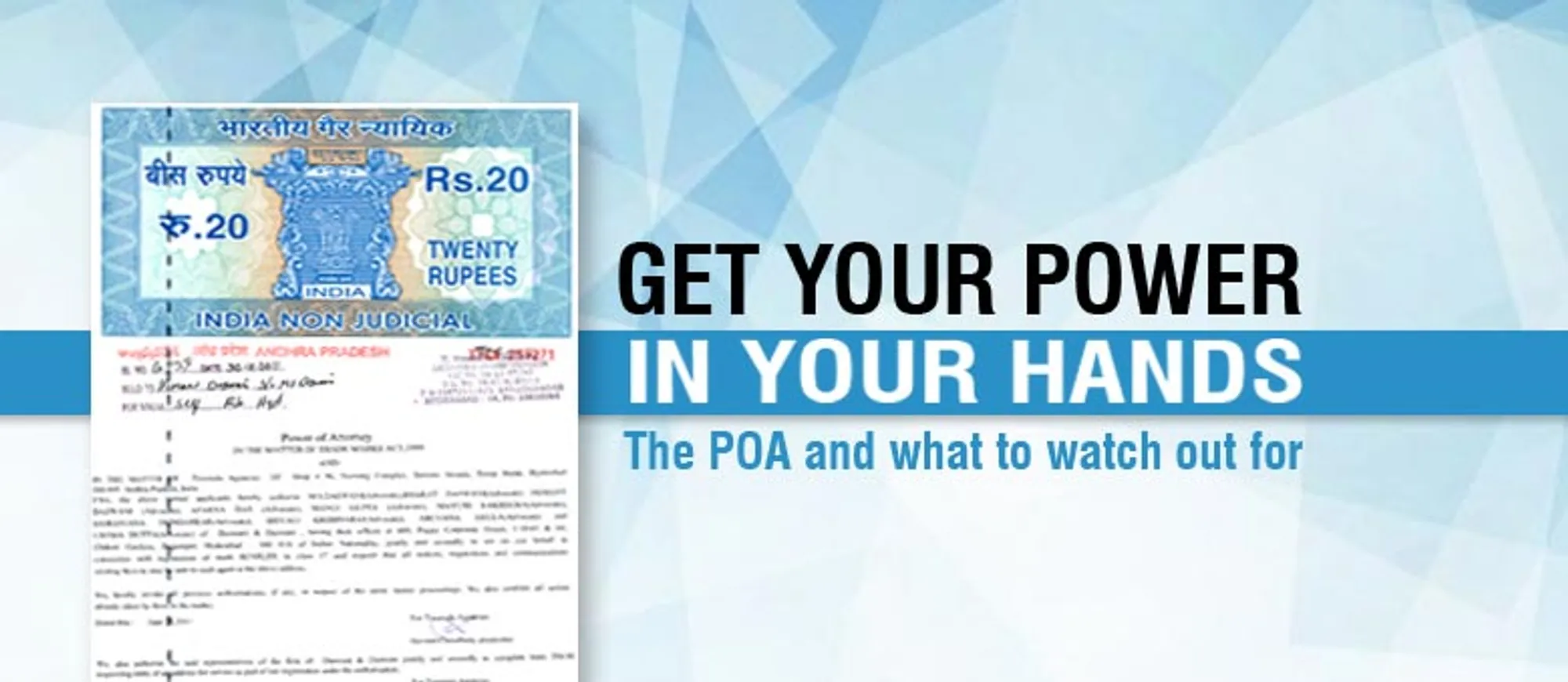It is common for us to have clients call us for legal advice because they have been duped because they ended up giving their ‘rights’ in the wrong hands! Most people treat the Power of Attorney as a simple paper just meant to share responsibilities. The reality is much different. Nonita Singh, one of our clients from Sydney, narrated how her distance from her hometown made it difficult for her to keep track of her property affairs. It was natural then that she succumbed to an offer by her cousin who suggested that she hand over a power of attorney to him. What was meant to be a helping hand turned out to be a big drain on her patience and harassment to her. Her fault? Only that unknowingly she ended up giving a blanket General Power of Attorney to her cousin. This resulted invested interests taking over, and to her shock & dismay, she discovered that most of her land had been taken over and was no longer in her name. Betrayed by family and at a dead end about her property, she contacted our office for help regarding her property dispute.
This makes us think – Are people aware of the nuances of the Power of Attorney? It is vital to understand fully what it entails giving the Power of Attorney to another. Power of Attorney (POA) is a legal document that empowers a specified person to act on behalf of the person executing it and make legal and financial decisions on his/her behalf.
Table of Contents
There are two types of POAs
- General POA: General POA is a document in which you give full authority to another person to act on your behalf for any legal procedure and take financial decisions without any limitations.
- Special POA: Special POA is a document in which you give restricted or limited authority to another person i.e. to act only on a specific matter or complete a particular or single transaction. Once the transaction is completed, or the matter is solved the POA expires i.e. it becomes null and void.
Legal Powers that can be granted to the Specified Person by the Executor of POA:
- To execute all bonds, contracts, deeds, notes, mortgages, drafts, money orders, checks, etc.
- To file, sign all insurance forms, tax returns, and any other documents.
- To manage, settle, adjust and compromise all the matters of real estate or property.
- To collect rents, lease, bargain, grant, borrow and mortgage, or sell.
- To sell any and all bonds, securities or shares of stocks.
- To enter and perform any agreements, contracts, writing.
- To make, sign, execute, deliver and acknowledge any agreement or contract.
- To sue on behalf of the executor of the Power of Attorney.
Execution of Power of Attorney:
- In the case where NRI is present in India –
- Step 1: The NRI, with the help of an attorney, will have to get the matter of POA drafted and then typed on stamp paper of appropriate value.
- Step 2: Then he/she will require visiting the Sub-Registrar’s office with the lawyer and the two witnesses.
- Step 3: One has to carry photocopy and original copy of POA to the Sub-Registrar’s office and also need to ensure that every person accompanying him/her has their valid identity proof with them.
- Step 4: Signatures, fingerprints, and photographs will be obtained at the office.
- Step 5: The POA seeker can collect it on the due date, i.e., after three to five days after the completion of all the formalities, from the office.
In case the NRI is out of India –
- Step 1: Before sending the POA document to India the NRIs have to get the document attested at the Indian consulate in their area of residence.
The steps involved in getting the POA attested from the Indian Consulate are:
- The Power of Attorney document prepared abroad does not require an Indian Stamp paper.
- The POA terms and conditions can be written on a plain white paper.
- The NRI should specify all the powers he/she wants to share with the POA holder in the document.
- He/ she should also explain everything that one wants the document holder to do on his/her behalf.
- Two copies have to be prepared, and the executor should not sign the document as it has to be in front of the Consular Officer at the time of attestation.
- The signatures of two witnesses are also required on the POA document.
- The Documents required at the time attestation in the Indian Consulate are:
- The POA deed prepared along with the copies
- The Original Passport and copies of all non-blank pages including the first and last page
- The copy of proof of Address in the residing country such as a bank statement, utility bill, driving license, etc.
- Proof of legal status in the residing country such as visa, etc.
- Two passport size photographs
- The fees applicable at the time of attestation
- The witnesses require having proof of identity at the time of signing the POA at the consulate.
- Step 2: The POA document has to be stamped within three months from the date of receiving the document in India.
- The stamp duty would be payable accordingly at the time registration of the document in India.
- At the time of registration of the document, the POA holder will need to give the proof of identity and proof of address along with a witness at the sub-registrar office.

